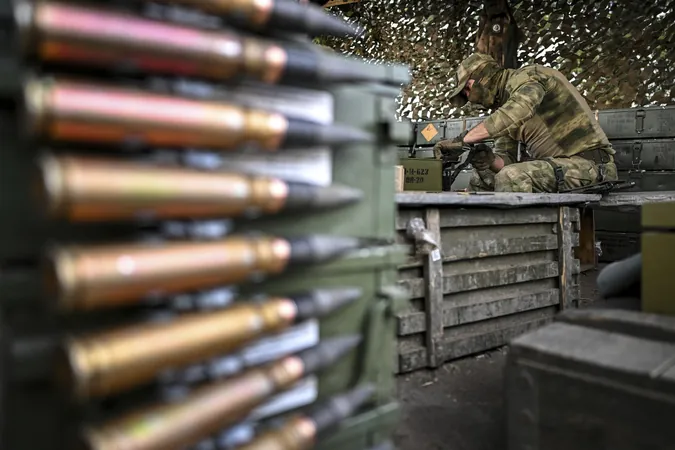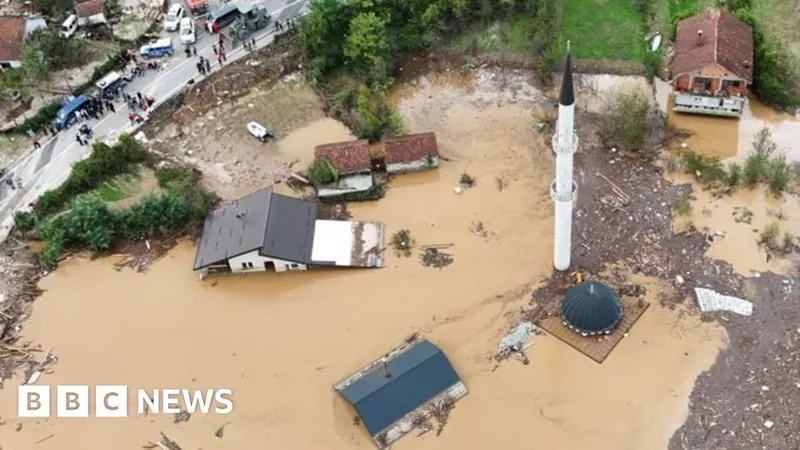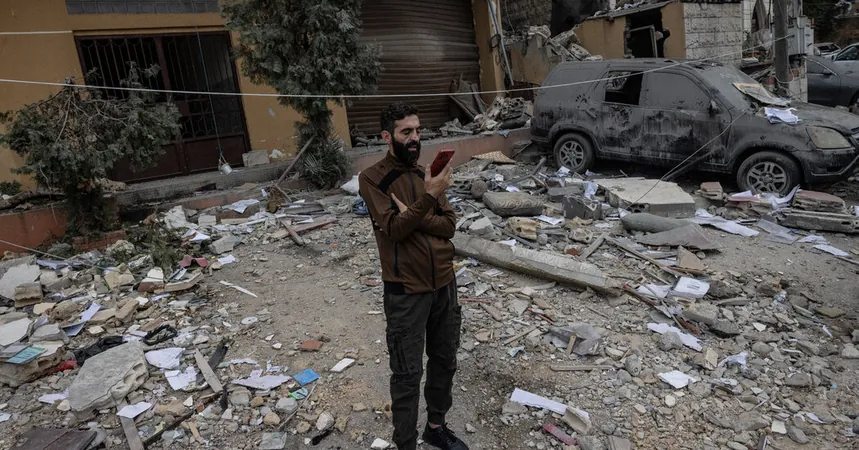
Ukraine Strikes Russian Depot: A Bold Move Against North Korean Arms Aid!
2024-10-09
Author: Ting
In a dramatic escalation of hostilities, Ukraine struck a Russian ammunition depot in the Bryansk region, allegedly housing munitions supplied by North Korea, a significant ally to Moscow. This strategic move aims to disrupt the armament support that fuels Russia's ongoing war in Ukraine.
According to Spravdi, a Ukrainian government-affiliated center combating misinformation, “another large Russian ammunition depot is lighting up the sky in the region of Bryansk.” The explosions, which began overnight and persisted into the early dawn hours, signify a clear intent from Kyiv to dismantle Russia's military arsenal. Although Spravdi stopped short of confirming direct Ukrainian involvement, they emphasized that “dismantling every aspect of Russia's war machine, its logistics, arms, and oil industries is the only path to peace.”
The warehouse targeted, located in the town of Karachev, was situated just 114 kilometers (71 miles) from Ukraine's border. Ukrainian National Security and Defense Council official Andriy Kovalenko revealed that the facility contained North Korean ammunition and anti-aircraft guns. This revelation underscores the growing military collaboration between Moscow and Pyongyang amidst ongoing international sanctions.
Russia's emergency situations ministry reported “explosions of explosive objects” in Karachev, and videos circulating on social media appeared to show multiple explosions, although their authenticity remains unverified by independent sources. A Russian Telegram channel linked to security services claimed footage captured local residents witnessing the devastation.
As tensions mount, the Russian defense ministry reported intercepting 24 Ukrainian drones over the Bryansk region, part of a broader campaign by Kyiv to weaken Russia’s wartime capabilities. While Bryansk's regional governor downplayed the incident by stating there were “no casualties or damage,” emergency services were deployed to assess the situation.
Moscow, increasingly isolated on the global stage since its invasion of Ukraine in February 2022, has sought military and logistical support from allies including Iran, China, and North Korea. Recent reports suggest North Korea has supplied thousands of containers of munitions to support Russia’s military operations, a chilling development noted by U.S. and South Korean intelligence.
Kyrylo Budanov, head of Ukraine's GUR military intelligence agency, highlighted the dire implications of North Korean arms, stating these supplies have had a significant impact on Ukraine’s military efforts within mere days of delivery. He labeled North Korea's assistance as “the worst problem we are facing.”
Despite restrictions on using long-range Western weaponry to strike inside Russia, Ukraine has been targeting ammunition depots, successfully hitting sites in Krasnodar and Tver regions. Notably, the Tikhoretsk facility in Krasnodar has been identified as one of Russia’s largest ammunition depots camouflaged with North Korean weaponry.
Meanwhile, North Korea continues to advance its missile development program, defying United Nations sanctions. Ukrainian military reports have confirmed that Russian forces have been deploying North Korea's KN-23 short-range ballistic missiles since late 2023, exacerbating the ongoing conflict.
As the situation escalates, the potential for deeper military cooperation between Moscow and Pyongyang looms larger. South Korean Defense Minister Kim Yong-hyun warned that North Korea may send troops to aid Russian efforts, a move that could dramatically shift the dynamics of the conflict. The two nations signed a mutual defense treaty in June, setting the stage for a more intertwined military alliance.
In a chilling end note, Ukrainian intelligence hinted at recent casualties involving North Korean personnel in the Donetsk region, showcasing the spillover effects of this international conflict. With both sides poised for further confrontations, the news of ongoing arms exchanges and military collaboration brings uncertainty and danger to the already tumultuous environment in Eastern Europe.
As the tension continues to rise, one must wonder: Will this conflict lead to a broader global confrontation? Stay tuned for updates on this unfolding geopolitical saga!





 Brasil (PT)
Brasil (PT)
 Canada (EN)
Canada (EN)
 Chile (ES)
Chile (ES)
 España (ES)
España (ES)
 France (FR)
France (FR)
 Hong Kong (EN)
Hong Kong (EN)
 Italia (IT)
Italia (IT)
 日本 (JA)
日本 (JA)
 Magyarország (HU)
Magyarország (HU)
 Norge (NO)
Norge (NO)
 Polska (PL)
Polska (PL)
 Schweiz (DE)
Schweiz (DE)
 Singapore (EN)
Singapore (EN)
 Sverige (SV)
Sverige (SV)
 Suomi (FI)
Suomi (FI)
 Türkiye (TR)
Türkiye (TR)